FM broadcast highlights from the post _Decoy_ era
July 17, 1984
JVC-Capital Radio Jazz Parade,
Royal Festival Hall,
Southbank Centre,
London, UK
MILES DAVIS
Miles Davis- trumpet, synthesizer
Bob Berg- tenor and soprano saxophones
John Scofield- guitar
Robert Irving III- synthesizers
Darryl Jones- bass guitar
Al Foster- drums
Steve Thornton- percussion
New Blues [Star People] (Miles Davis) 00:00
What It Is (Miles Davis-John Scofield) 08:34
It Gets Better [incomplete] (Miles Davis) 18:19
Time After Time (Cyndi Lauper-Rob Hyman) 26:40
Hopscotch (Marcus Miller) 36:17
Jean Pierre (Miles Davis) 42:52
closing titles 50:29
Early 1984 saw a break in Miles' demanding touring schedule. At the end of the previous year saxophonist Bill Evans left to join John McLaughlin's Mahavishnu band, while percussionist Mino Cinelu went to Weather Report. Recording sessions were held early in the year, with Miles recording a number of cover versions of pop tunes, including Cyndi Lauper's Time After Time. But Miles also contracted pneumonia, and was convalescing after a hip operation (photos from his return to the stage often see him using a cane). According to Miles, he was using this time to practice every day and build up his chops, and to go swimming to help his breathing and stamina.
In June he lead his band on a tour of the US and Europe with new recruits Steve Thornton, who had played percussion on the studio sessions, and saxophonist Bob Berg. Berg recalls that, to his surprise, Miles was playing strongly during this period. "The first gig we played... I was shocked. I mean, not shocked, but pleasantly surprised at how strong Miles was... Generally he was really _on_ the whole time. I mean amazingly. He could hit high notes that I had never heard him play before."
Promoter George Wein launched a jazz festival in collaboration with London radio station Capital Radio in 1979, initially at the Alexandra Palace (nicknamed 'Ally Pally'), to some discontent from British jazz musicians, unhappy at the US-centric line-up. The festival the following year was abandoned when, the night before it was due to start, the Ally Pally burned to the ground. Wein recalled "The fire had spread so fast that, had it happened the following night, many of our audience of 5000 might have perished. We were lucky, but it was the end of the Ally Pally festival. For a few years we tried to keep it alive... We achieved varying degrees of success, but never captured the spirit or momentum of what we had at Ally Pally." The 1981 festival moved to Knebworth House but in later years found a home at the 2,700 capacity Royal Festival Hall, situated within the Southbank Centre, a handsome modern arts complex built on the River Thames, at the southern end of Waterloo Bridge.
Now renamed the JVC-Capital Radio Jazz Parade, to fit the branding of other JVC jazz festivals around Europe, it became one of the stops in Miles's now customary summer European tour. Writer George Cole, author of the superb _The Last Miles: The Music of Miles Davis 1980-1991_ (Equinox Publishing, 2005) attended this gig, the first of two concerts that day. "There were quite a few changes to the band from the previous year... [Jones] especially intrigued me as he looked so young (in fact, he was only 22). The entire band was dressed casually; Miles wore a sailor’s cap and sports jacket, while Jones was wearing a blue boiler suit... It was soon clear that Berg was a superb musician, Jones was a formidable bassist and Miles’s chops were definitely on the up." (You can read Cole's full account at https://www.thelastmiles.com/miles-davis-moments-royal-festival-hall-july-1984/ )
This recording of selected highlights from the 75 minute set was broadcast by Capital Radio (a complete audience tape exists but is not in my collection). The band is tight and energetic, Jones and Sco are especially compelling and Miles is in great form. Berg is oddly underused, appearing on only two tunes, but plays some typically burning horn. The pieces are drawn from _Decoy,_ and _We Want Miles_ along with a couple of unreleased titles; Time After Time would have been a surprise for the audience, as the studio version would not be released until the following year.
The tape was in less than perfect sound, with a booming, muddy low end and a non existent top end. I re-Eqed the audio to give the bass better definition and bring out some of the higher frequencies, but it's still less than optimum for a 40 year old FM broadcast. Still, it's very listenable and the quality of the music shines through.
Miles was busy crossing the Atlantic that year; the band returned for a short European visit in the autumn, then Davis returned again in December, visiting Copenhagen to accept the Léonie Sonning Music Prize, and playing music written by Palle Mikkelborg that would become the genesis of 1985's _Aura,_ before returning to New York to complete the sessions for _You're Under Arrest._
July 17, 1984
JVC-Capital Radio Jazz Parade,
Royal Festival Hall,
Southbank Centre,
London, UK
MILES DAVIS
Miles Davis- trumpet, synthesizer
Bob Berg- tenor and soprano saxophones
John Scofield- guitar
Robert Irving III- synthesizers
Darryl Jones- bass guitar
Al Foster- drums
Steve Thornton- percussion
New Blues [Star People] (Miles Davis) 00:00
What It Is (Miles Davis-John Scofield) 08:34
It Gets Better [incomplete] (Miles Davis) 18:19
Time After Time (Cyndi Lauper-Rob Hyman) 26:40
Hopscotch (Marcus Miller) 36:17
Jean Pierre (Miles Davis) 42:52
closing titles 50:29
Early 1984 saw a break in Miles' demanding touring schedule. At the end of the previous year saxophonist Bill Evans left to join John McLaughlin's Mahavishnu band, while percussionist Mino Cinelu went to Weather Report. Recording sessions were held early in the year, with Miles recording a number of cover versions of pop tunes, including Cyndi Lauper's Time After Time. But Miles also contracted pneumonia, and was convalescing after a hip operation (photos from his return to the stage often see him using a cane). According to Miles, he was using this time to practice every day and build up his chops, and to go swimming to help his breathing and stamina.
In June he lead his band on a tour of the US and Europe with new recruits Steve Thornton, who had played percussion on the studio sessions, and saxophonist Bob Berg. Berg recalls that, to his surprise, Miles was playing strongly during this period. "The first gig we played... I was shocked. I mean, not shocked, but pleasantly surprised at how strong Miles was... Generally he was really _on_ the whole time. I mean amazingly. He could hit high notes that I had never heard him play before."
Promoter George Wein launched a jazz festival in collaboration with London radio station Capital Radio in 1979, initially at the Alexandra Palace (nicknamed 'Ally Pally'), to some discontent from British jazz musicians, unhappy at the US-centric line-up. The festival the following year was abandoned when, the night before it was due to start, the Ally Pally burned to the ground. Wein recalled "The fire had spread so fast that, had it happened the following night, many of our audience of 5000 might have perished. We were lucky, but it was the end of the Ally Pally festival. For a few years we tried to keep it alive... We achieved varying degrees of success, but never captured the spirit or momentum of what we had at Ally Pally." The 1981 festival moved to Knebworth House but in later years found a home at the 2,700 capacity Royal Festival Hall, situated within the Southbank Centre, a handsome modern arts complex built on the River Thames, at the southern end of Waterloo Bridge.
Now renamed the JVC-Capital Radio Jazz Parade, to fit the branding of other JVC jazz festivals around Europe, it became one of the stops in Miles's now customary summer European tour. Writer George Cole, author of the superb _The Last Miles: The Music of Miles Davis 1980-1991_ (Equinox Publishing, 2005) attended this gig, the first of two concerts that day. "There were quite a few changes to the band from the previous year... [Jones] especially intrigued me as he looked so young (in fact, he was only 22). The entire band was dressed casually; Miles wore a sailor’s cap and sports jacket, while Jones was wearing a blue boiler suit... It was soon clear that Berg was a superb musician, Jones was a formidable bassist and Miles’s chops were definitely on the up." (You can read Cole's full account at https://www.thelastmiles.com/miles-davis-moments-royal-festival-hall-july-1984/ )
This recording of selected highlights from the 75 minute set was broadcast by Capital Radio (a complete audience tape exists but is not in my collection). The band is tight and energetic, Jones and Sco are especially compelling and Miles is in great form. Berg is oddly underused, appearing on only two tunes, but plays some typically burning horn. The pieces are drawn from _Decoy,_ and _We Want Miles_ along with a couple of unreleased titles; Time After Time would have been a surprise for the audience, as the studio version would not be released until the following year.
The tape was in less than perfect sound, with a booming, muddy low end and a non existent top end. I re-Eqed the audio to give the bass better definition and bring out some of the higher frequencies, but it's still less than optimum for a 40 year old FM broadcast. Still, it's very listenable and the quality of the music shines through.
Miles was busy crossing the Atlantic that year; the band returned for a short European visit in the autumn, then Davis returned again in December, visiting Copenhagen to accept the Léonie Sonning Music Prize, and playing music written by Palle Mikkelborg that would become the genesis of 1985's _Aura,_ before returning to New York to complete the sessions for _You're Under Arrest._
- Category
- Live Concert

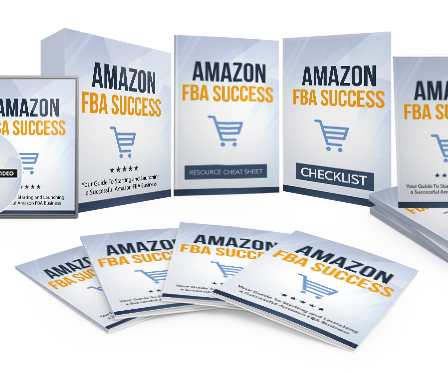





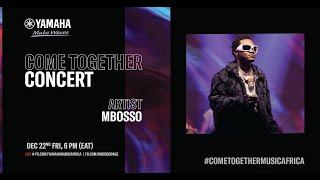

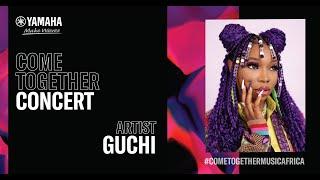
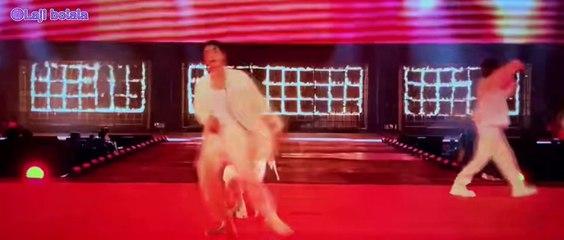
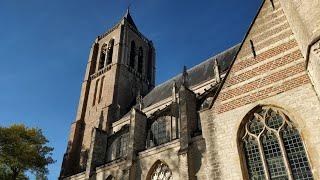
Comments